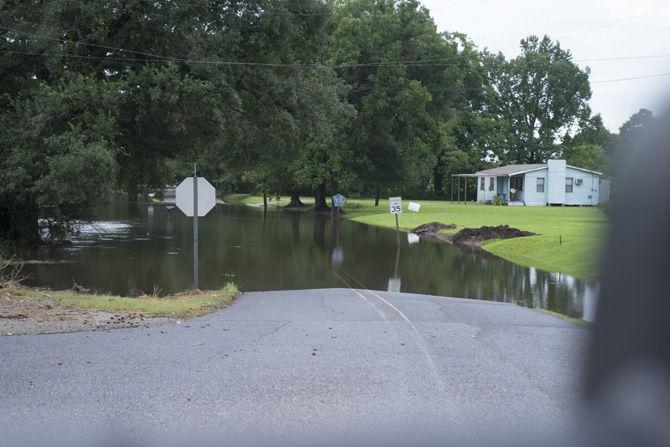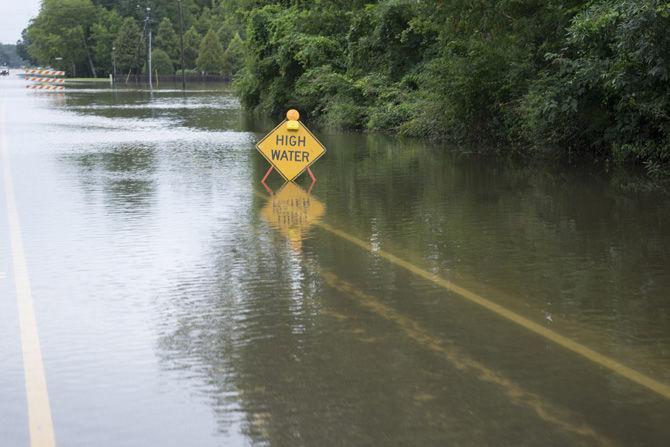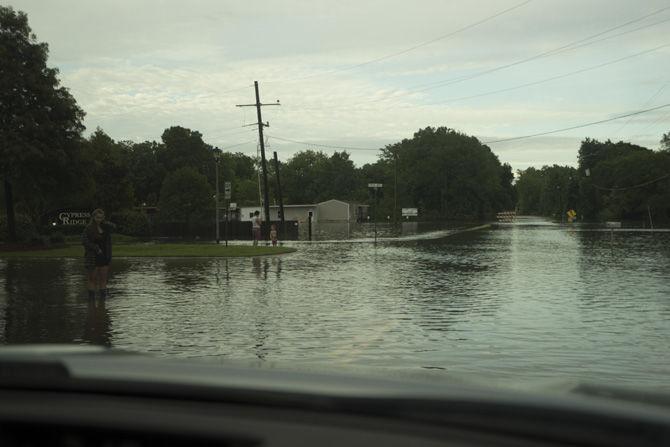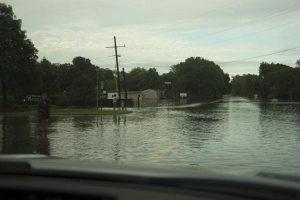The storm that flooded Southeast Louisiana did not end with the rain that fell on the weekend of Aug. 12. The true storm came afterwards, when families returned to their homes to find entire neighborhoods destroyed and their belongings floating in the streets.
Those who did not have friends and family to stay with became the tens of thousands of people living in shelters throughout Louisiana. Now, students across the state are burdened with the looming responsibility of returning to school this week.
In an Aug. 19 broadcast email, LSU President F. King Alexander said classes would begin as scheduled because “it is critically important for our community to continue moving forward even as we help our friends and family recover,” and that “healing requires a sense of normalcy and routine and comfort.” Alexander also conceded that some students and faculty members will not be able to “join us yet.”
The University has set up a food pantry in the Student Union that is accessible to all students and a medical shelter in the Carl Maddox Field House. It has also set up a Student Relief Fund that will distribute money to students who lost possessions in the flood.
But for students like biology junior Josh Johnson, these resources are simply not enough.
“It was 4 a.m. when the water started coming in the house in Central, where I live,” he said.
Johnson and his family lost everything. Their home, their cars and their financial stability were taken by the eight feet of water that invaded their neighborhood.
“I barely have clothes, and I’m still living out of a backpack. Do I think school should start Monday? No. If you’re like me, you lost everything. I don’t have a car or a place to live.”
It’s the everyday financial stresses that weigh heaviest on those students who were affected by the flood. Besides the anxiety of losing full TOPS funding earlier this year, the daily questions of “How am I going to afford to eat today?” and “How will I get to school?” now burden our fellow Tigers.
“Money is super tight right now. The next big thing I’m worried about is getting books for the semester,” Johnson said. “My family is trying to get back to normal ,and having school this Monday is literally a stretch for me and making my current situation extremely hard.”
Alexander’s statement about healing requiring normalcy sounds like the right thing to say at a time like this. But what about students like Josh who don’t have a place to sleep at night? Alexander’s idea of healing fails to address students’ definition of what it takes to bring them relief from the devastation. The resources the University is offering are generous, but the biggest resource that they are failing to provide is time.
What administrators don’t understand is that the destruction does not solely extend to our physical circumstances. The emotional ruins left behind by the floods come with a sense of hopelessness and resignation that can’t be fixed with an email offering the thoughts and prayers of the very people who refuse to give us time to heal. It demonstrates a lack of true understanding and empathy on the University’s part.
There are no facts and statistics that can truly explain the heartbreak and devastation that students and their families are facing. The University calls its student body, faculty and staff a family, but a large portion of that family is being left behind in this disaster. We are not yet ready to come back to school and face the pressure of college when our peers, families and friends don’t have a warm bed to go home to.
Alexander is right about one thing: “Recovery won’t happen overnight, but it will happen.” I only wish that instead of trying to preserve a false sense of normalcy, administrators would realize that starting school on time only heightens the troubles of our peers.
Some may think that this is just a complaint about having to go to school despite the fact that campus is largely undamaged by the flood. But I urge you to consider this: As students of a university, we pay thousands of dollars in tuition and fees in order to receive the best education possible. The professors and administrators are on our payroll. So why is it that no one is asking our opinion?
Anjana Nair is an 18-year-old international studies sophomore from Baton Rouge, Louisiana.
Opinion: University fails to provide students with time to heal
By Anjana Nair
August 21, 2016
New River Canal on Aug. 13, 2016 as it remains an impasse for locals.










